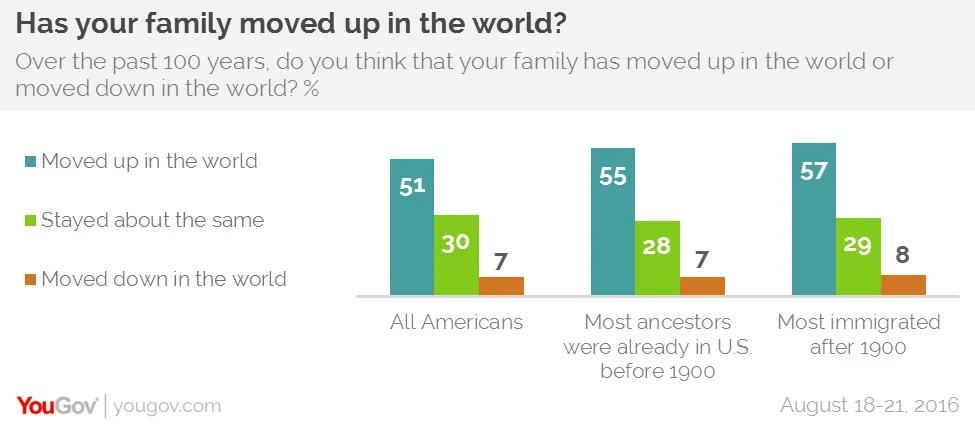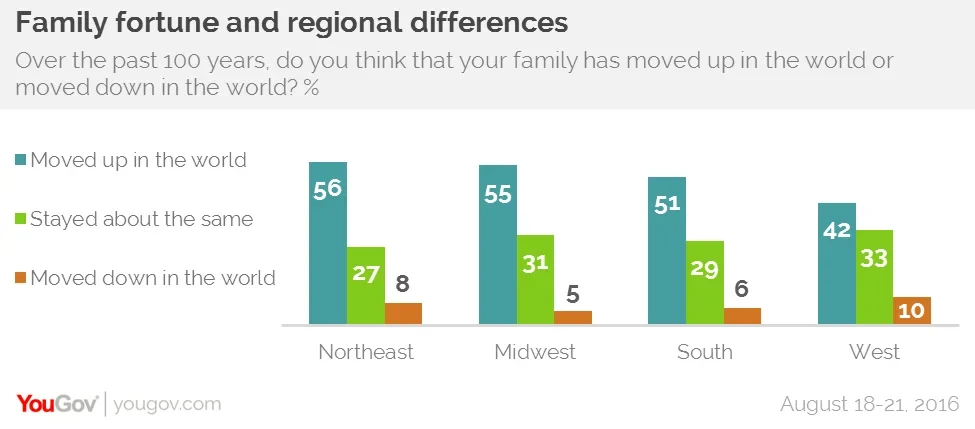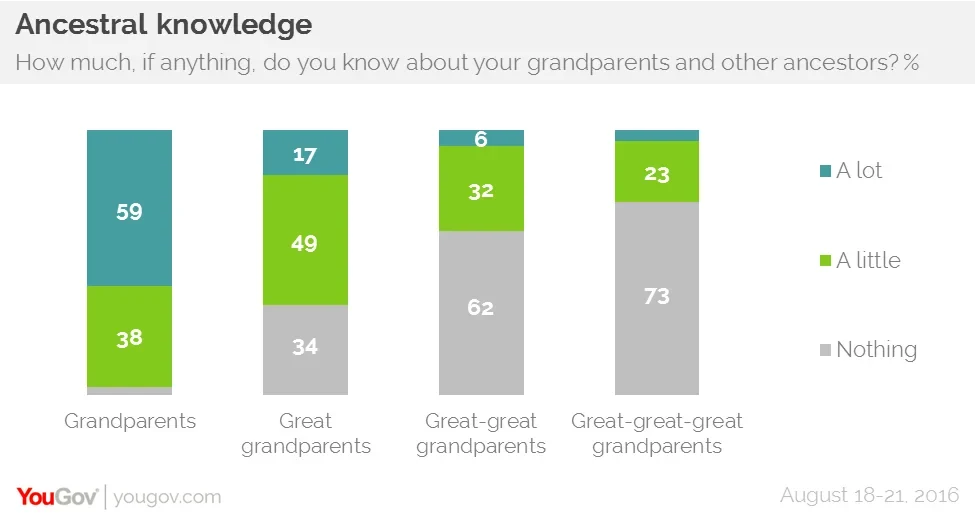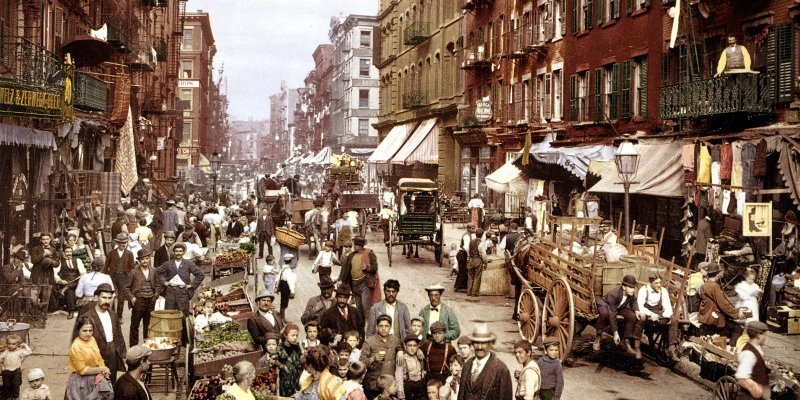Overall, 38% of Americans know at least a little about their great-great-grandparents
Millions of Americans have researched their family history, often through websites such as Ancestry.com, charting their family trees back through the years. For most Americans their family history includes the fateful decision of an ancestor to uproot their lives in some far corner of the world to come to America in hope of making a better life.
Research from YouGov shows that while just over half (51%) say that their family has moved up in the world over the past century, 37% say that their family has either stayed where it was (30%) or fallen in the world (7%). Whether or not someone's family primarily came to the United States before 1900 (54% of the country) or after 1900 (24% of the country) does not make much of a difference of opinion, as post-1900 immigrant families (57%) are only slightly more likely than pre-1900 immigration families (55%) to say that they have moved up in the world.

While immigration history doesn't make much of a difference to people's family fortunes, region does. Despite the traditional belief that the West is where fortunes are made, the West is the only region where a majority of Americans do not think their family moved up in the world. 42% of Westerners think that their family has moved up in the world over the past century, compared to 56% of people in the Northeast.

Unsurprisingly, people in families with annual incomes over $100,000 (62%) are the most likely to think their family has moved up in the world over the past 100 years, while only 47% of people in families earning under $50,000 a year say the same.
Most Americans (59%) know a lot about their grandparents, but knowledge of past generations drops quickly for older ancestors. 34% know nothing about their great grandparents, along with 62% who know nothing about their great-great grandparents.











